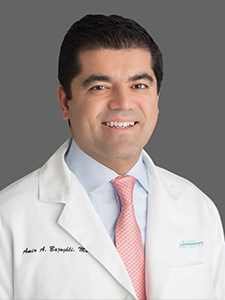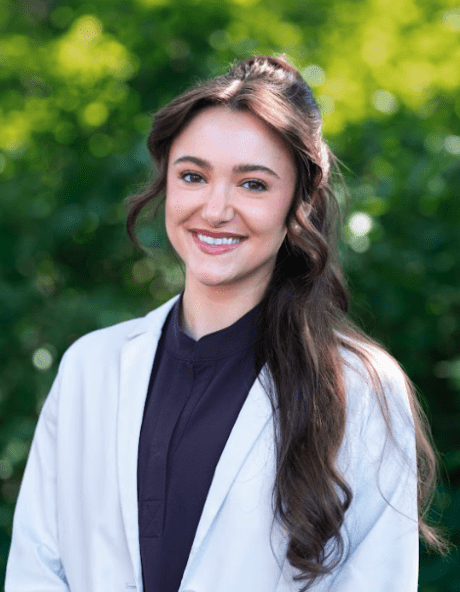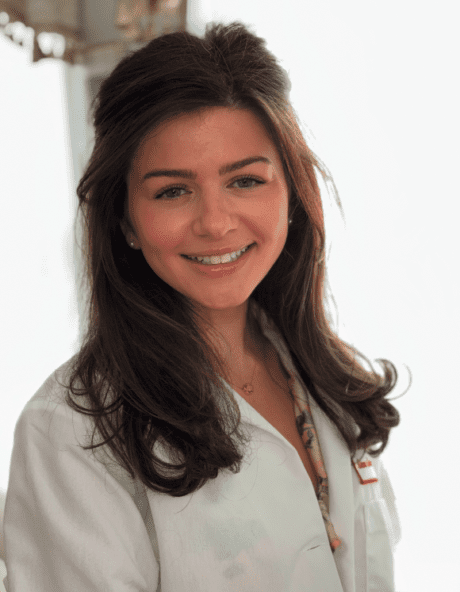Basal cell carcinoma on the scalp
Accounting for greater than 90% of all skin cancers occurring among Americans, basal cell carcinoma (BCC) is the most prevalent type. While it rarely metastasizes (spreads) to other sites in the body, BCC may cause damage to surrounding tissues. BCCs form on and around the scalp quite often, and it is therefore important to have a dermatologist check for changing or suspicious lesions regularly. A BCC on the scalp often appears as a crusty spot that will not heal. Many people assume these are just normal (benign) pimps or chapped skin. Ensure your prediction is correct and catch anything unusual early by calling today to schedule an appointment.
What causes a BCC to form?
BCCs are generally caused by harmful ultraviolet rays from the sun or the use of tanning beds. When these rays come in contact with the skin, they can damage each skin cell’s DNA. The body attempts to fix the skin damage, but when it is frequently exposed, it can no longer adequately repair itself. This can lead to skin cancers developing, such as BCC. Generally speaking, BCC skin cancer tends to appear in areas of skin that receive a lot of sun of the years, such as the scalp. A number of risk factors can increase the risk of developing a BCC, including but not limited to:
- Personal physical traits
-
-
- Light skin complexion and/or freckles
- The tendency to auburn rather than tan
-
- Contributing activities
-
- Spending a considerable amount of time outdoors without using appropriate sun-protective measures (sunscreen and protective clothing such as hats, long-sleeved tops, and pants)
- Tanning equipment exposure – frequent use of a tanning bed or sun lamp
- Medical history
- Previous BCC – having a history of skin lesions increases the risk for developing subsequent instances of skin cancer
- Heredity
- Immunosuppressive drugs – organ recipients and those with severe cases of arthritis, lymphoma, or HIV often take medications that suppress their immune system
- Excessive radiation exposure – having numerous X-rays done
How is a BCC on the lip treated?
Mohs surgery is commonly used to treat BCCs on the scalp. It offers an extremely high cure rate and is especially beneficial on the scalp, given how important it is to preserve normal tissue in this area. Mohs surgery also ensures that any “roots” of the cancer are completely removed, preventing the cancer from spreading (metastasizing). For further information on Mohs surgery, please review our page dedicated to the procedure.
What is going to happen to my scalp if I have surgery?
It is understandable to feel nervous about surgery on such a sensitive and important part of your body. BCCs on the scalp are quite common however, and given the extensive experience of the Mohs surgeons at Skin and Laser Dermatology Center, patients can be assured of the outcomes from surgery. Mohs surgeons are trained to repair the wound to achieve the best cosmetic and functional outcome. Post-surgical can take between a few weeks to several months, so patients are encouraged to follow up frequently for reassurance and to check results.
What happens if the cancer from my scalp has spread?
While it is uncommon, if a BCC has spread to other regions, another surgeon and oncologist may be part of a multidisciplinary team to help determine treatment.
How can I lower the risk of developing a BCC?
The best way to lower the chances of developing a BCC is to avoid exposure to the sun as much as possible. Regular skin checks are also an excellent way to detect a BCC in its earliest stages, which has an extremely high cure rate of over 98%. A patient or their partner can check for signs of BCC at home, too, such as a pimple that does not heal after multiple weeks. Dermatologists recommend that you go to your primary care physician or dermatologist for frequent skin cancer checkups. Other preventative strategies include:
- Limiting sun exposure – avoid excessive sun especially for recreation
- Avoid peak sun times – peak time is between 11 AM to 3 PM
- Wear protective clothing – wide brimmed hats and protective skin coverings
- Use sunscreen – routine use of either waterproof or water resistant sunscreens containing UVA/UVB protection and a SPF factor of 30 or higher.
- Tell your doctor about lesions, especially those that are suspicious appearing and/or changing in shape/color/size or have become symptomatic (such as bleeding, itching, etc.)
Frequently Asked Questions
Our Providers
Dedicated Team
Skin & Laser Dermatology Center treats patients for all skin care concerns, including skin cancer surgery, cosmetic dermatology, sclerotherapy, laser peels, laser hair removal, hyperhidrosis, rosacea, and acne treatments.






